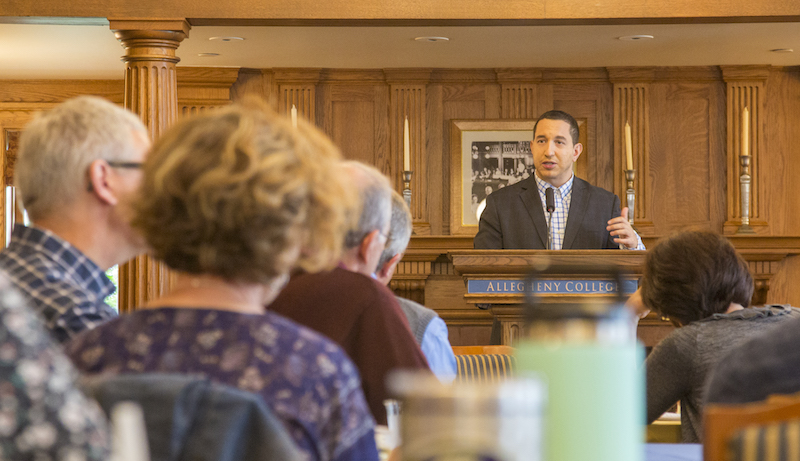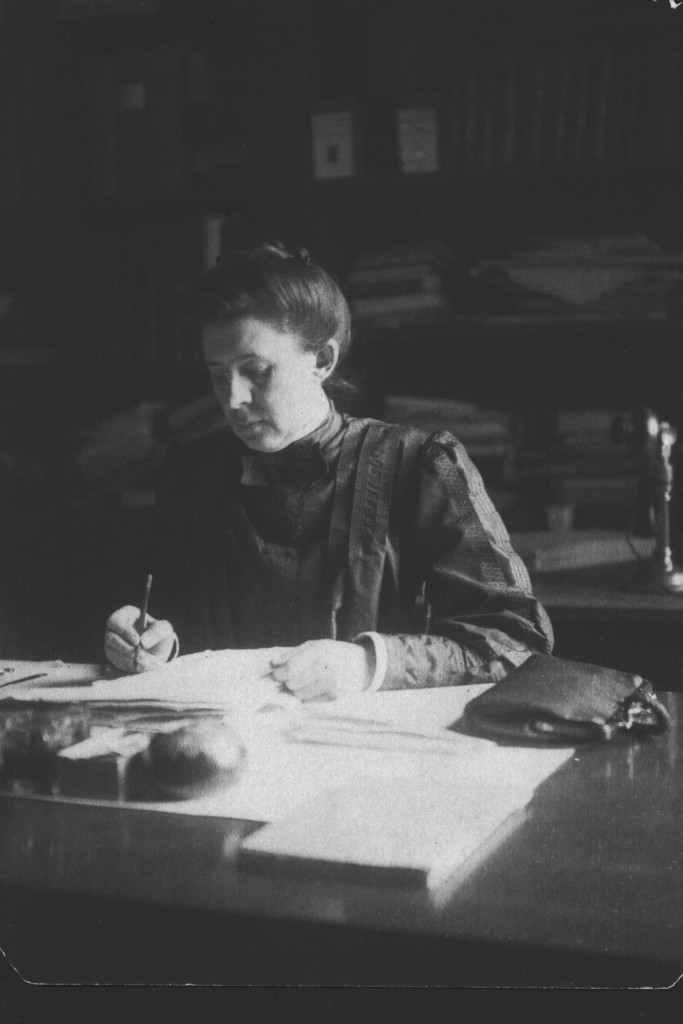A year ago, Marley Parish, Alex Weidenhof and Ellis Giacomelli had just received their diplomas from Allegheny College. They now find themselves as community journalists working for local newspapers and covering the impacts of the worldwide pandemic that is perhaps the biggest ongoing story since World War II.
All three of the 2019 graduates and former staff members of The Campus found their callings at local newspapers — Parish works for the Centre Daily Times, Weidenhof at the Cranberry Eagle, both in Pennsylvania, and Giacomelli at the Watertown Daily Times in upstate New York.
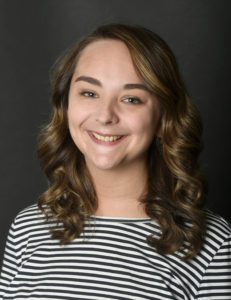
“The only thing you can plan for in life is uncertainty, and the pandemic reaffirms that,” Parish says. “Covering such a complex story is a responsibility I do not take lightly. I pay attention to the numbers — how many people have been tested, the number of confirmed cases, the death toll. That data, paired with personal stories, localizes a global situation and highlights how Centre County has been impacted. I’ve learned more than I thought possible in nearly three months of COVID-19 coverage. It’s not easy, but I know it has and will continue to make me a better storyteller.”
Adds Weidenhof: “The Campus’ adviser my freshman year, Cheryl Hatch, always told us that reporting is about being able to adapt. This is absolutely good practice for that. In the span of a couple of months, we’ve had to change all of our beats, become health reporters, then labor reporters, then move back into our beats while still figuring out how to cover the pandemic. That’s at least something I can take away from this positively.”
Although the mostly rural and suburban areas they report on have not been “hotspots” for the coronavirus outbreak, the pandemic still works its way into almost every story they cover.
“As a journalist, my primary role is to inform the public through storytelling, and good storytelling demands context,” Giacomelli says. “So at this point, stories about school board budget proposals or hospital wing construction cannot be told without addressing how the COVID-19 crisis may have an impact.”
“Since mid-March, I’ve written perhaps a handful of stories that haven’t in some way pertained to the virus,” says Weidenhof. “The pandemic and the resulting economic impact of mitigation efforts have wormed their way into every facet of a local newspaper’s pages, from work and school closures, to health worries, to municipal governments figuring out how to prepare for the ensuing drop in tax revenue.”
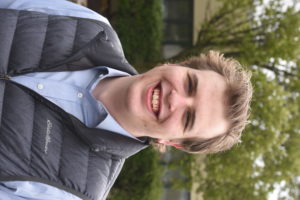
These journalists have found their news sources and most of the general public don’t harbor hostility toward the news media.
“When I started a year ago, I was shocked at how forthcoming and accessible most people were,” Parish says. “That responsiveness has only grown. The media is no stranger to being vilified, but at the end of the day, we’re storytellers tasked with reporting the truth. County commissioners, public health professionals and school administrators recognize the widespread feeling of uncertainty, and most want to provide answers. Officials aren’t embarrassed to admit when they don’t have them yet.”
“Gauging sources is a big part of being a good journalist, and it’s important to strike a balance between being sensitive to and empathetic about deeply personal stories, and advocating to sources that those stories be told,” Giacomelli says. “Every source is different. Some people love to talk — about anything and everything — and others, not so much.”
An Allegheny education definitely helped them navigate a new career in rapidly changing times, they say.
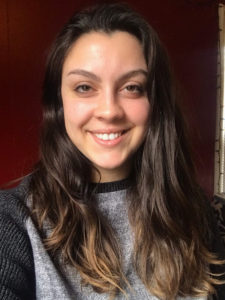
“Allegheny’s Journalism in the Public Interest Program pushed me to honor that eagerness and develop an understanding of journalistic integrity and the essentiality of journalistic freedom in democratic systems,” says Giacomelli. The small, but powerful, team of Allegheny educators committed to the JPI program has worked tirelessly to engage students in the art, history and the profession of journalism. I chose to be part of the professional journalism world because of them, and continue to learn more every day. And The Campus showed me what a newsroom is — a collection of eccentric people, often buzzed on caffeine and always ready to tell stories.”
Says Weidenhof: “A year before this all hit, I was writing a fake article about a make-believe measles outbreak for my epidemiology final. Now, I’m writing real articles about an actual coronavirus pandemic for a newspaper. This is significantly less fun.”
“Allegheny taught me to attack challenges head-on, and The Campus prepared me for just about anything,” says Parish. “Former staffers will tell you that my unofficial title as editor was ‘crisis manager.’ With computers crashing, stories falling through and technology snafus happening more often than I still care to admit, we overcame every challenge. Fortitude is the mentality I continue to live by. In the event that I forget, my office — located in a State College apartment — is decorated with framed Campus newspapers, my Allegheny diploma, and my email usually has a message from former professors who continue to encourage me from afar.”
